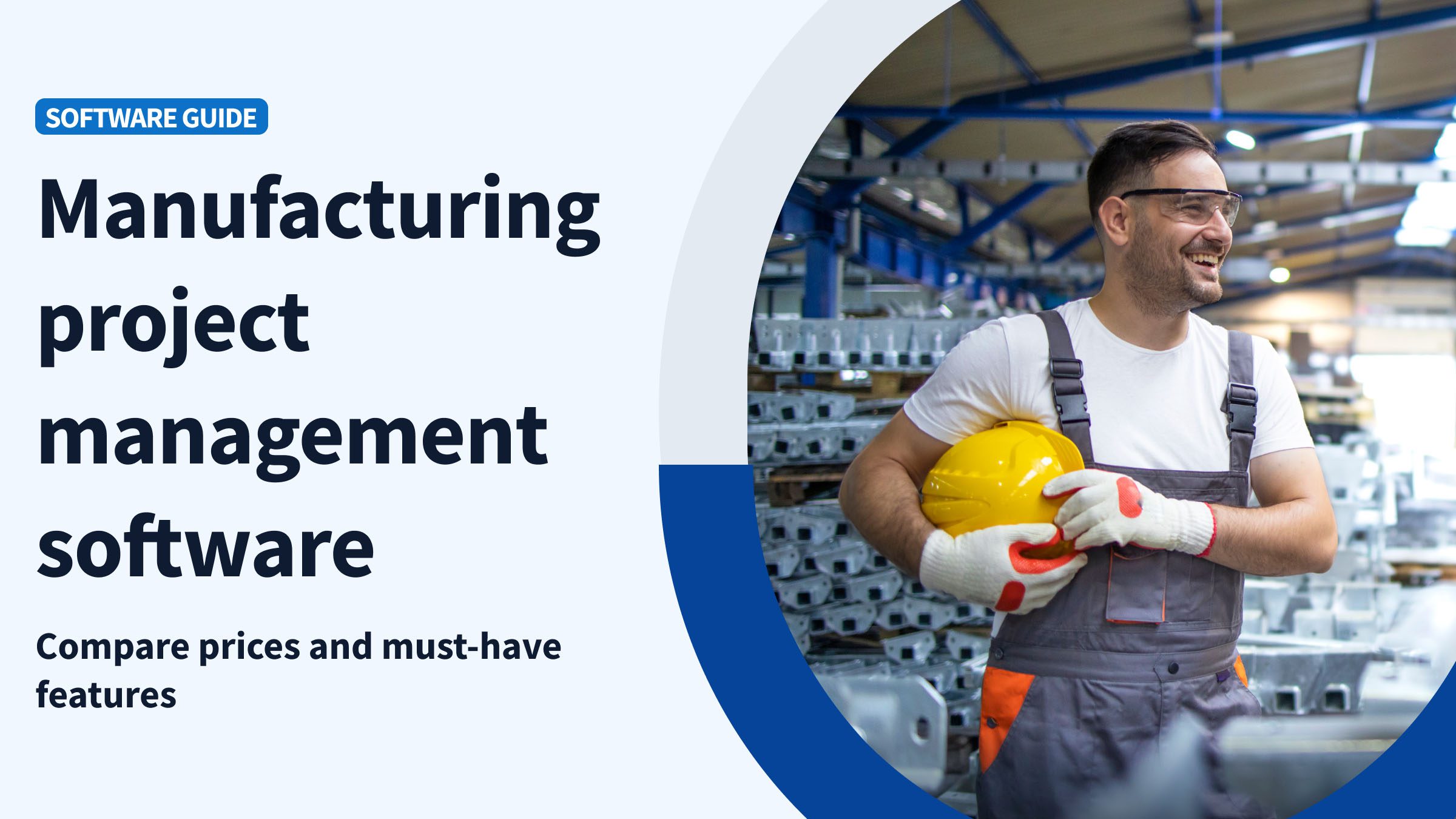Are you still trying to manage your production timelines using spreadsheets and constantly chasing updates over email? Many manufacturing teams begin this way. However, as operations scale, cracks begin to appear and missed deadlines, bottlenecks, scattered data, and frustrated teams become more common.
Manufacturing demands project management software built for the job. And no, we’re not referring to just any task manager. We mean tools specifically designed for the complex, dynamic world of manufacturing. 🏭👷♂️
Here at Method CRM, we’ve been supporting QuickBooks-based businesses since 2010. Method is loved ❤️ by business owners in the manufacturing sector for its real-time, two-way QuickBooks sync; end-to-end sales automation; and no-code customizations.
This guide will take you through:
- What a manufacturing project management tool actually does, and how they’re distinct from general-purpose tools meant for office work.
- Essential features that assist with real-time updates, smarter scheduling, team collaboration, and quality control.
- A comprehensive list of the top manufacturing project management software options available in 2026, catering to various team sizes and business needs.
- An in-depth look at Method CRM, particularly valuable for QuickBooks users who want customizable workflows and real-time data without the typical tech challenges.
If you’re aiming to streamline processes, reduce manual workloads, and keep everyone from the front office to the shop floor coordinated, this guide offers expert insights, practical examples, and software solutions that truly align with how manufacturers operate in reality. 🤝
Table of Contents
- What a manufacturing project management tool really does ⚙️
- Why generic tools don’t cut it ❌
- Key features to look for in manufacturing project management software
- 1. Method CRM – Best for QuickBooks users
- 2. Katana – Best for small manufacturers
- 3. DELMIAWorks (formerly IQMS) – Best for full ERP integration
- 4. Smartsheet – Best for spreadsheet lovers
- 5. Hexagon – Best for advanced quality control
- 6. Wrike – Best for cross-team visibility
- 7. NetSuite ERP – Best for large-scale operations
- 8. JobBOSS² – Best for job shops
- 9. Asana – Best for flexible task management
- 10. Trello – Best for simple Kanban
- 11. Autodesk Fusion – Best for engineering-led PM
- 12. Zoho Projects – Best for budget-conscious teams
- 13. CoConstruct – Best for custom builders
- 14. Monday.com – Best for visual workflows
- 15. ClickUp – Best for all-in-one workspaces
- 16. Procore – Best for industrial construction
- 17. FactoryFour (Xometry) – Best for digital order tracking
- 18. Easy Project – Best for teams with external clients
- 19. ERPAG – Best for all-in-one on a budget
What a manufacturing project management tool really does ⚙️
If you’ve ever attempted to manage a production floor using a generic project management app, you’ve probably felt the frustration.
That’s because these apps are typically crafted for office teams, creative agencies, or tech startups. They aren’t designed for manufacturers who deal with real-time inventory, shop-floor data, quality control, or complex production schedules.
Manufacturing project management software is built differently, tailored to a world where the tiniest issues can escalate into missed shipments, wasted resources, or compliance failures.
Generic project management tools are helpful for assigning tasks and tracking deadlines, which is beneficial when working on digital campaigns or marketing materials. However, it’s a different story when it comes to manufacturing.
In manufacturing environments, projects depend on machines, raw materials, supplier timelines, safety standards, and hands-on work. A good manufacturing project management tool integrates all these moving parts, connecting your workforce, systems, and data to ensure production flows smoothly, not more slowly.
Here’s what gives manufacturing project management tools an edge.
Provides real-time inventory connections 🔗
In manufacturing, having the necessary parts and materials at the right time is essential. A true manufacturing project management software synchronizes with your inventory system, providing real-time insights. In turn, you always know whether you have what’s needed to stay on schedule.
Even better, some tools can trigger automatic alerts or reorder points, so your team never gets caught off guard.
Captures shop-floor data as it happens 📈
Relying on paper notes or end-of-day logins leads to missed details and time lags. Effective manufacturing tools let team members update information directly from the shop floor. Anything from tracking time to marking task progress and flagging quality issues is all done in real time.
Managers then get to stay informed without constant check-ins and enjoy better tracking of metrics like efficiency and machine output.
Smarter scheduling for production lines 🗓️
Generic tools often assume that work proceeds linearly. In manufacturing, that’s rarely the case. Tasks are linked to machines, specific operators, shift changes, and sometimes even weather.
Manufacturing project management tools allow you to create production schedules that mirror reality. You can accommodate equipment availability, work order dependencies, and team capacity to reduce bottlenecks and ensure every team member knows what’s next.
Integrates quality control into the workflow ✅
When quality control is separate from the main systems, issues are often overlooked or repeated. A good manufacturing project management tool embeds quality control within the workflow. Examples of this could include automatic checks after certain stages, mandatory inspection sign-offs, or alerts when something is off-spec.
An integrated approach helps track quality metrics, reduce waste, and keep compliance at the forefront without adding extra administrative tasks.
Why generic tools don’t cut it ❌
Many standard project management applications often leave manufacturers scrambling to fill in the gaps.
You might find yourself using spreadsheets to manually track time, relying on memory to verify machine availability, or juggling multiple systems just to update a client on their order’s status.
Does this scenario sound familiar?
Our discussions with manufacturing teams often reveal shared pain points:
- Dependencies between processes are frequently overlooked.
- No seamless integration with inventory or procurement systems.
- Manual time tracking methods are cumbersome.
- A noticeable lack of real-time production insights.
- An excessive number of disjointed tools are used across departments.
- Generic tools that assist in project planning but fall short of running a factory efficiently.
- A need for software that integrates everything your team needs: materials, personnel, machinery, timelines, and data into a single cohesive system.
A genuine manufacturing project management tool is designed to tackle those pain points. Manufacturing requires a system that fully comprehends your processes, including the management of materials, machines, teams, compliance, and deadlines, which are key to operations.
A purpose-built solution allows you to:
- Plan projects based on inventory levels and machine availability.
- Provide clear task lists and quality instructions to guide your workers.
- Capture production progress as it happens.
- Access real-time data without manual updates.
- Identify slowdowns early using metrics specific to manufacturing.
There’s no need for a dozen disconnected apps. Instead, a single system should consolidate all operations. With proper manufacturing project management software, your team can spend less time chasing updates and more time ensuring production stays on track.
Key features to look for in manufacturing project management software
What works for a marketing agency or remote tech team often does not meet the complex needs of the shop floor.
When choosing manufacturing project management software, you need features made specifically for your work. That might include tools to help juggle supply chains, production timelines, customer orders, and budget constraints at the same time.
Here’s a deeper look at the features that really matter.
Dashboards that show the full picture 💻
Visibility is everything. In manufacturing, every delay, inventory error, or resource conflict has a ripple effect. A smart dashboard can be your best friend. It should give you a clear, real-time overview of project health, team workloads, current blockers, and delivery timelines.
The best dashboards are customizable. You should be able to decide exactly what shows up first. Want a quick glance at overdue jobs or how today’s production is performing? No problem. Need to compare machine usage from last week? That should be just a click away.
True visibility helps you make decisions faster and makes daily team check-ins much more effective. Everyone sees the same data and knows what to focus on.
Interactive Gantt charts and Kanban boards 📊
You may have used Gantt charts before, but interactive ones take things further. They let you drag and drop tasks, adjust dependencies, and instantly see how schedule changes affect the rest of the project. That’s a huge advantage in manufacturing, where one delay can shift the entire timeline.
Kanban boards offer a different, more visual way to manage work. Think of them as digital whiteboards showing where each task or job sits in your production pipeline. Whether it is “waiting on materials” or “ready for QA,” Kanban views give your team clear, real-time visibility.
The beauty of having both Gantt and Kanban views is that you can zoom in and out of project details depending on what you need to focus on that day.
Built-in resource management and allocation 👥
One of the hardest parts of running manufacturing projects is balancing resources. You manage people, machines, materials, and timelines. Any misstep leads to delays or wasted capacity.
A good project management tool should provide easy-to-use built-in resource management. You should be able to view team schedules, machine availability, and stock levels in one place. It should also alert you if your CNC machine is already booked or if your quality team is overloaded.
These qualities also help with forward planning. If you know demand is rising next month, you can make decisions now about overtime, supplier scheduling, or equipment rentals.
Automation that works in the background 🦾
Manual data entry and admin tasks are both time-consuming and increase the risk of mistakes. A good manufacturing PM tool should come with automation that simplifies your life without adding complexity.
For example, you can set automation rules such as:
- If a task is completed, notify the next team or person.
- If raw material stock drops below a set threshold, automatically generate a purchase request.
- If a due date is missed, send a reminder to the project lead.
Automation like this keeps your operations running smoothly, reduces human error, and frees up your team to focus on more valuable work. You aren’t replacing anyone but helping them be more efficient.
Two-way accounting sync for smarter cost control 🔄
Project tracking is great, but if it is not tied to your finances, you’re flying blind. With two-way accounting sync, this won’t happen.
When your project management software integrates with tools like QuickBooks, everything connects. You can track job costs in real time, invoice directly from the platform, and keep your accounting team in the loop without any extra effort.
If you’re looking to understand project profitability, it’s incredibly important to have. You can monitor actual costs against estimates, adjust pricing if needed, and avoid surprises at the end of a job.
If your tool doesn’t sync accounting and operations together, you’re probably doing double the work and missing key insights.
Putting it all together 🙌
At the end of the day, the right project management software should do more than organize tasks. It should give you better visibility, help you manage people and machines more effectively, and make your operations more profitable.
If your current system is forcing you to juggle spreadsheets, email threads, and disconnected tools, it might be time to upgrade. Look for a solution that brings dashboards, planning tools, automation, and accounting into one clean system.
Staying ahead of the curve is how smart manufacturers stay ahead of delays, control costs, and grow sustainably.
Top manufacturing project management software options
Here’s a closer look at 19 top-rated manufacturing project management tools, each with a quick summary of key features, pricing tiers, and standout modules. These platforms offer a range of options to suit everything from job shops and growing manufacturers to large-scale industrial operations.
1. Method CRM – Best for QuickBooks users
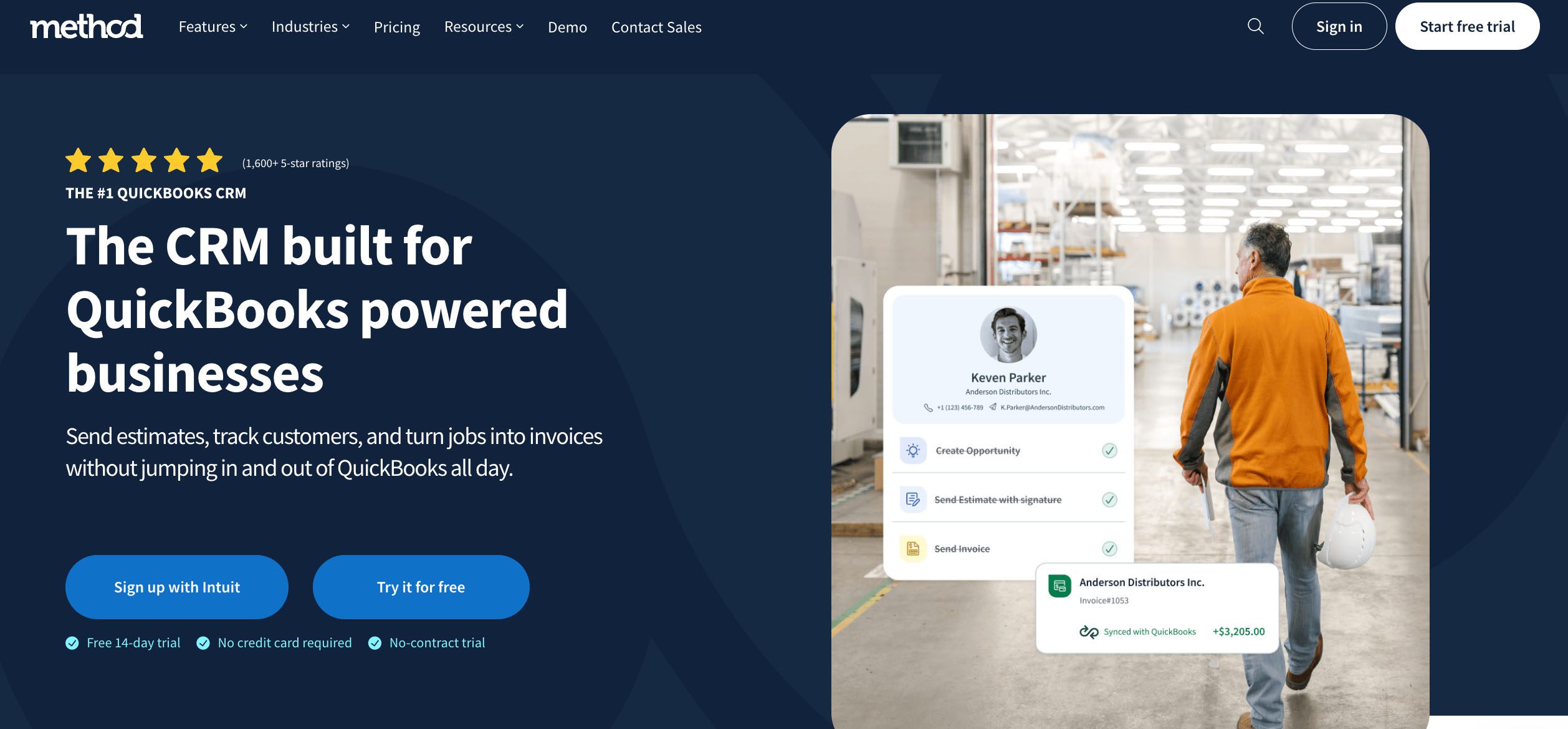
- Pricing: Starts at $27/user/month (14-day free trial available).
- Standout features:
- Two-way QuickBooks sync for job costing, invoicing, and expenses.
- No-code customization to match your specific workflow needs.
- Built-in project tracking, customer support, and sales tools.
- Best for: Manufacturers who want deep accounting integration and scalable CRM functionality without extra modules.
2. Katana – Best for small manufacturers
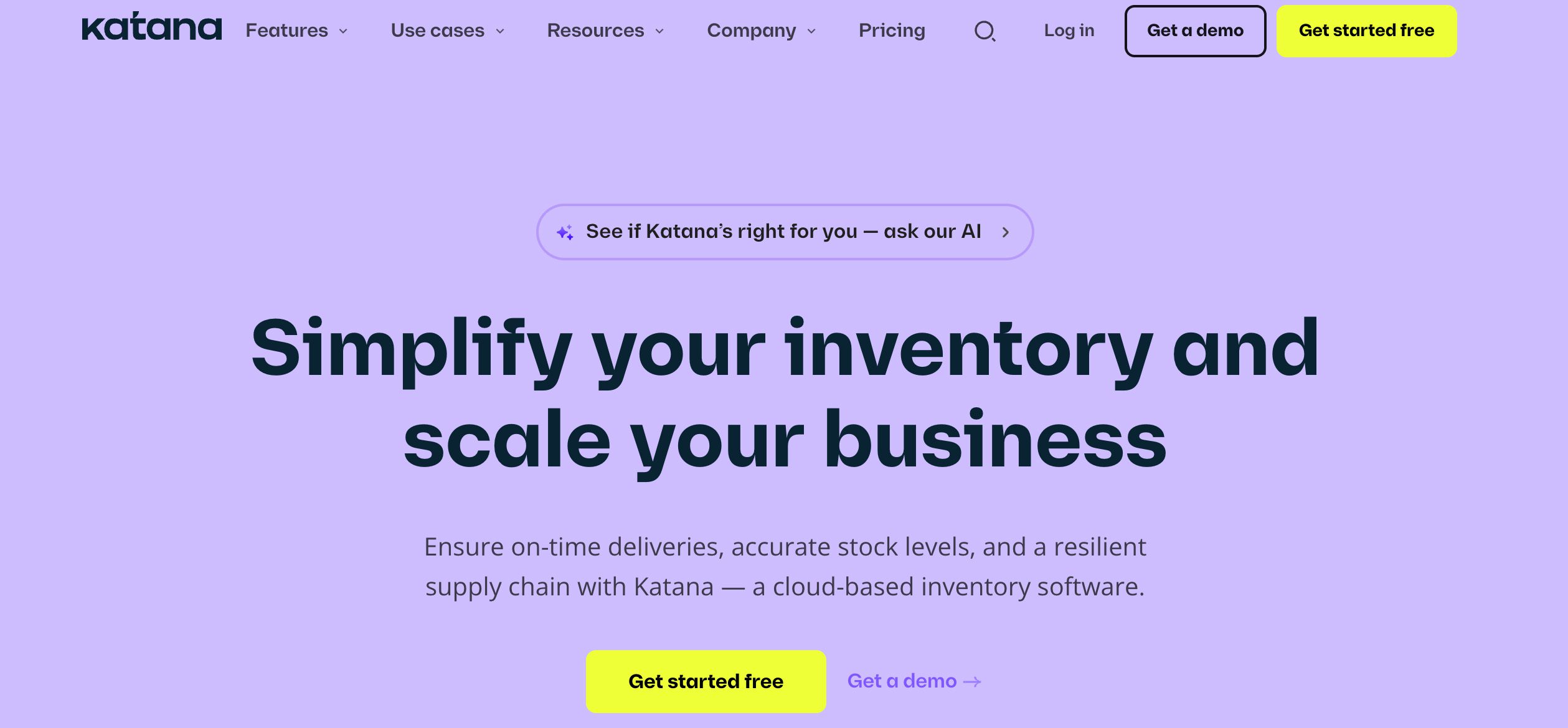
- Pricing: Free plan available.
- Standout features:
- Live inventory and production management.
- Real-time shop floor control and manufacturing timelines.
- Visual production planning via drag-and-drop boards.
- Best for: DTC manufacturers and small factories.
3. DELMIAWorks (formerly IQMS) – Best for full ERP integration
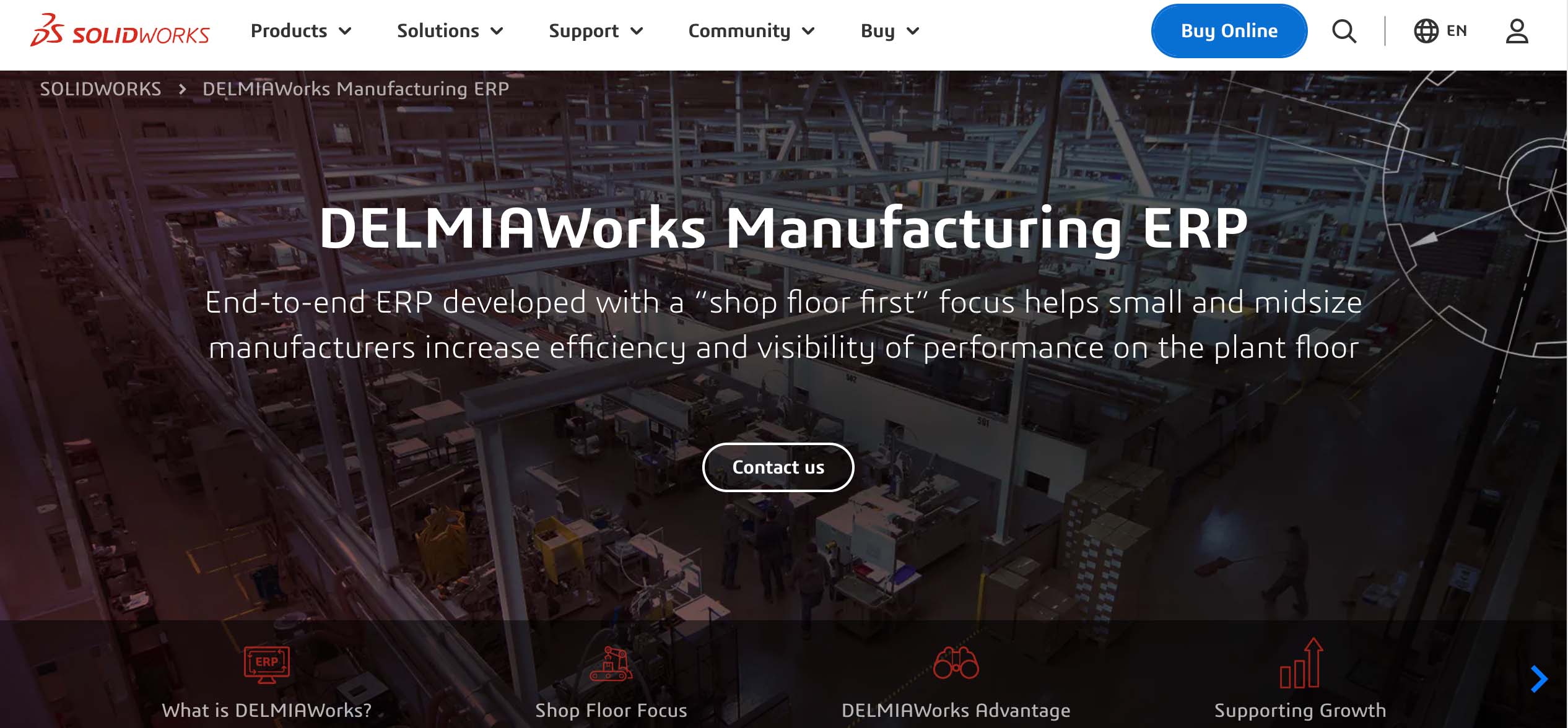
- Pricing: Custom enterprise pricing.
- Standout features:
- ERP and MES functionality in one platform.
- Real-time shop floor control, quality, and inventory tracking.
- Built for mid-sized to large manufacturers.
- Best for: Manufacturers who want an all-in-one ERP and MES system.
4. Smartsheet – Best for spreadsheet lovers
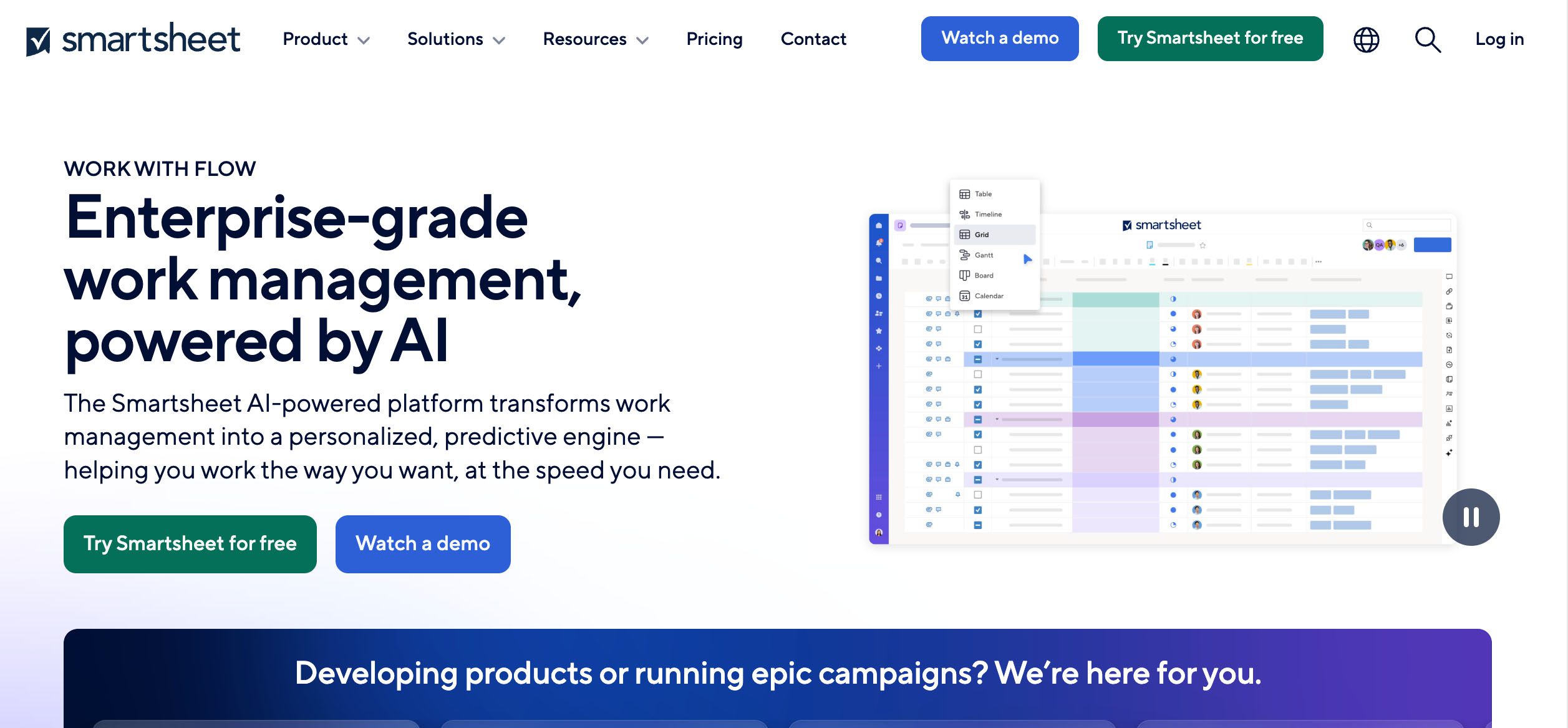
- Pricing: Starts at $9/member/month.
- Standout features:
- Spreadsheet-style project planning with Gantt and Kanban views.
- Automations, dashboards, and approval workflows.
- Integrates with Microsoft, Google, and other major tools.
- Best for: Teams transitioning from Excel or Google Sheets.
5. Hexagon – Best for advanced quality control
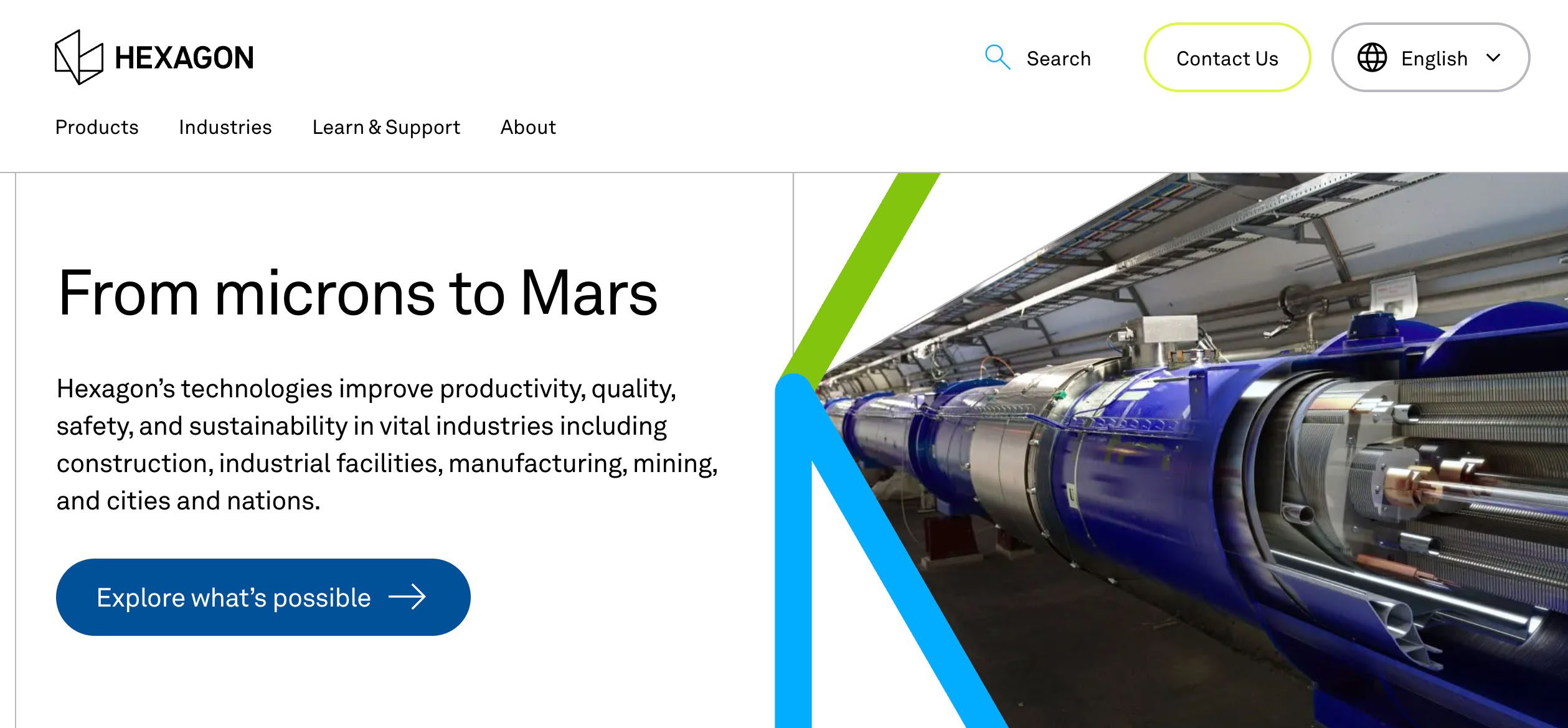
- Pricing: Custom pricing.
- Standout features:
- Digital twin modelling and metrology integration.
- Real-time data capture from machinery.
- Detailed reporting on quality and inspection.
- Best for: Precision manufacturers and aerospace suppliers.
6. Wrike – Best for cross-team visibility
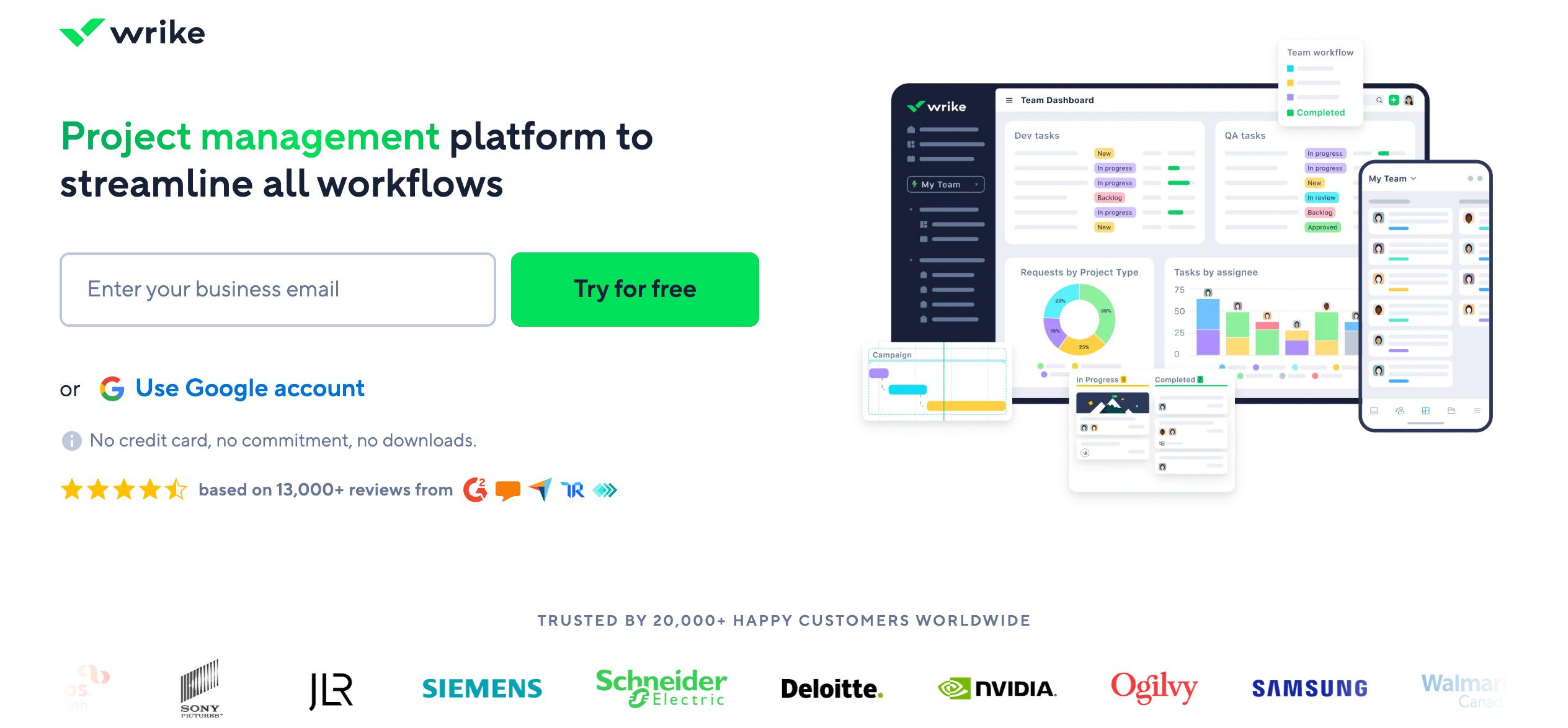
- Pricing: Free plan available. Paid plans start at $10/user/month.
- Standout features:
- Real-time dashboards and project reporting.
- Pre-built templates for manufacturing projects.
- Collaborative proofing, automation, and time tracking.
- Best for: Teams with operations, sales, and production all under one roof.
7. NetSuite ERP – Best for large-scale operations
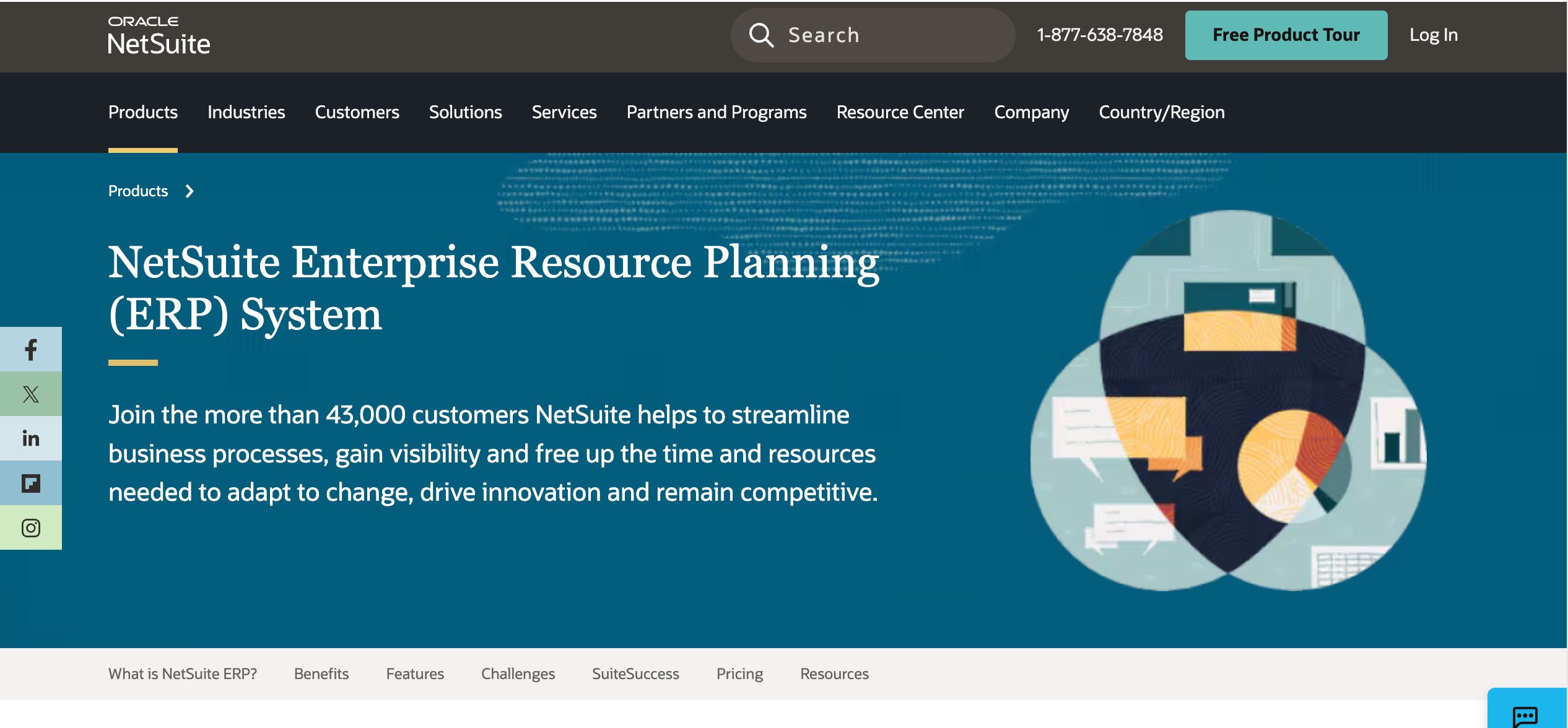
- Pricing: Custom pricing based on modules and users.
- Standout features:
- Comprehensive ERP system with supply chain and project management.
- Custom workflows and multi-site operations.
- Advanced financial and production controls.
- Best for: Manufacturers looking for complete business visibility.
8. JobBOSS² – Best for job shops
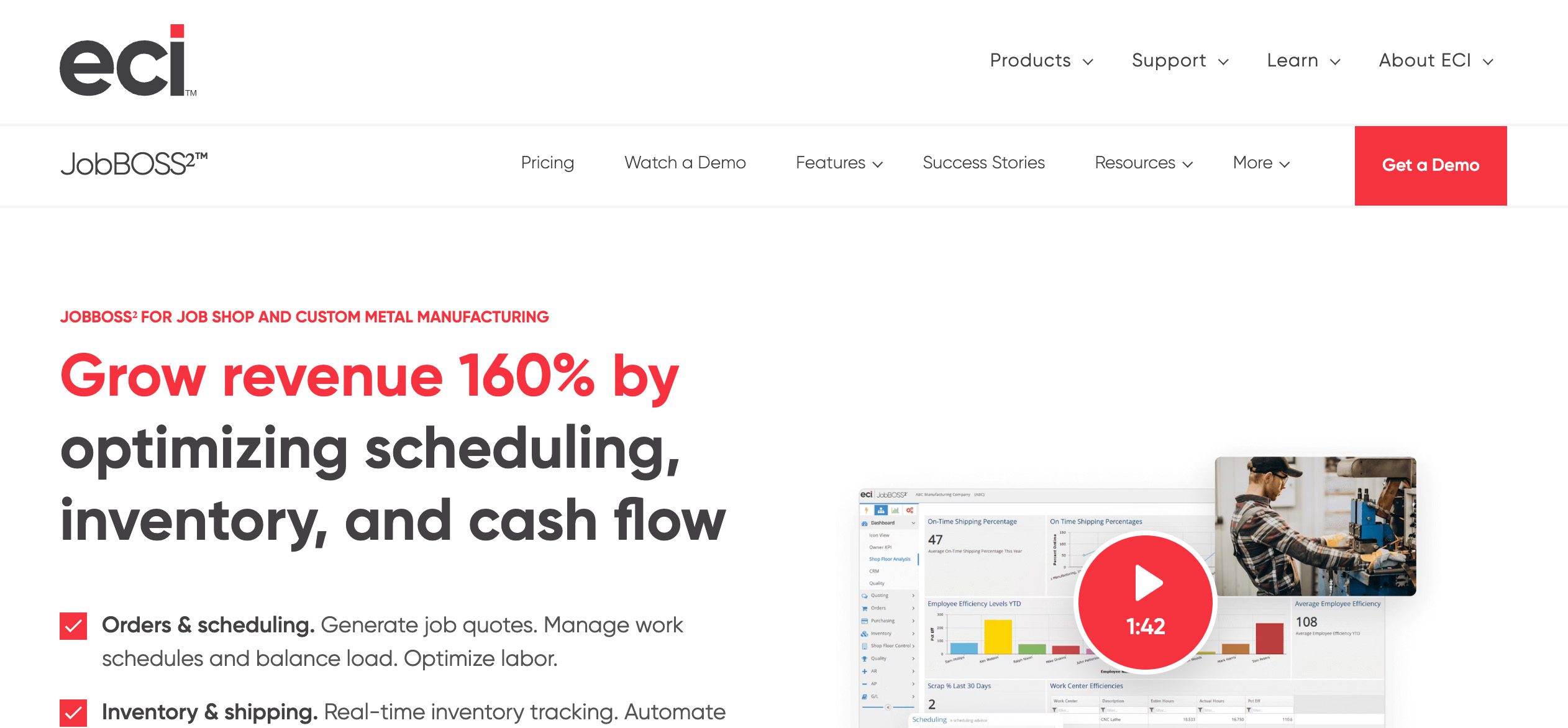
- Pricing: Custom pricing.
- Standout features:
- Real-time job costing, quoting, and scheduling.
- Shop floor insights and production management.
- Accounting and inventory tools.
- Best for: Make-to-order manufacturers.
9. Asana – Best for flexible task management
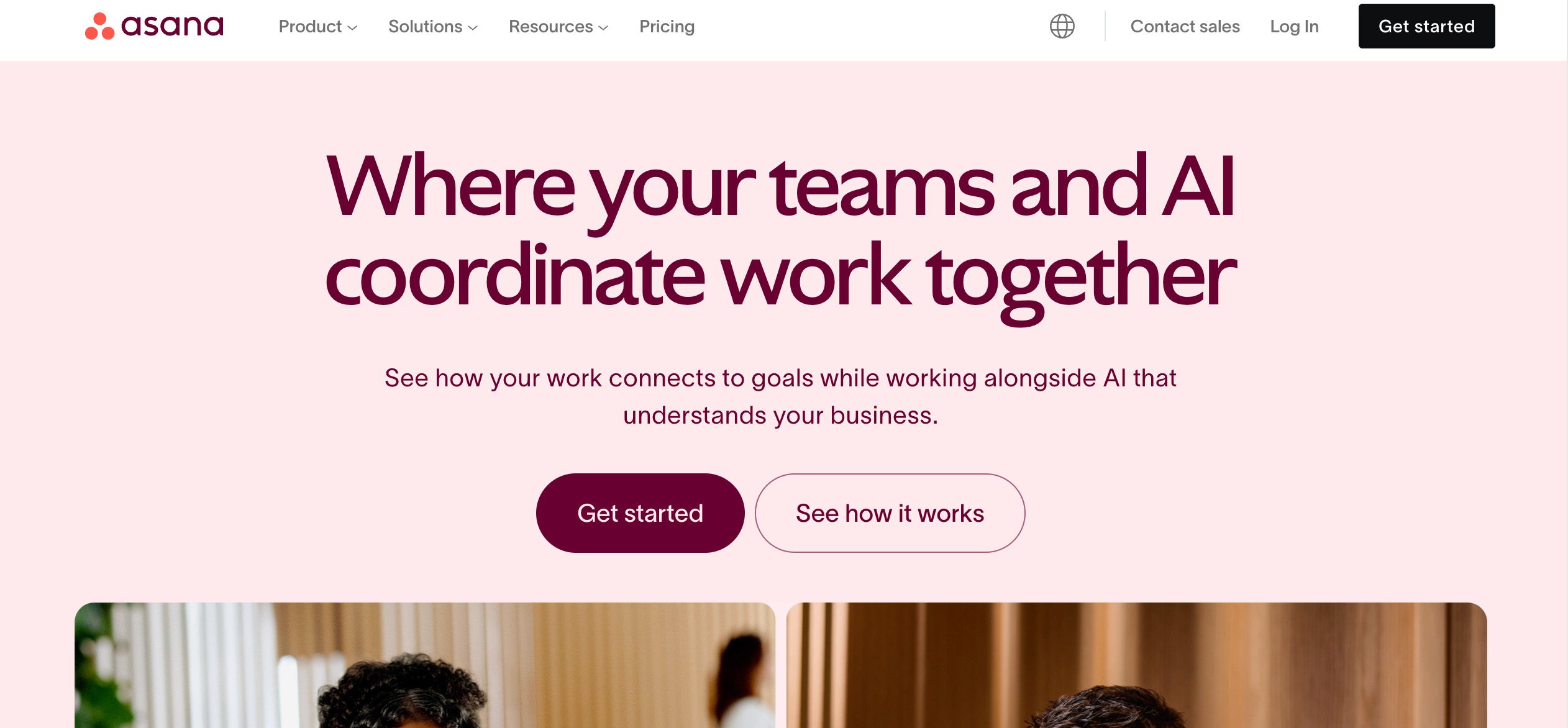
- Pricing: Free plan available. Paid plans start at $10.99/user/month when billed annually.
- Standout features:
- Project templates, automation, and workload tracking.
- Kanban boards and Gantt chart timelines.
- Integration with Google Drive, Slack, and more.
- Best for: Project and operations managers needing an easy task system.
10. Trello – Best for simple Kanban
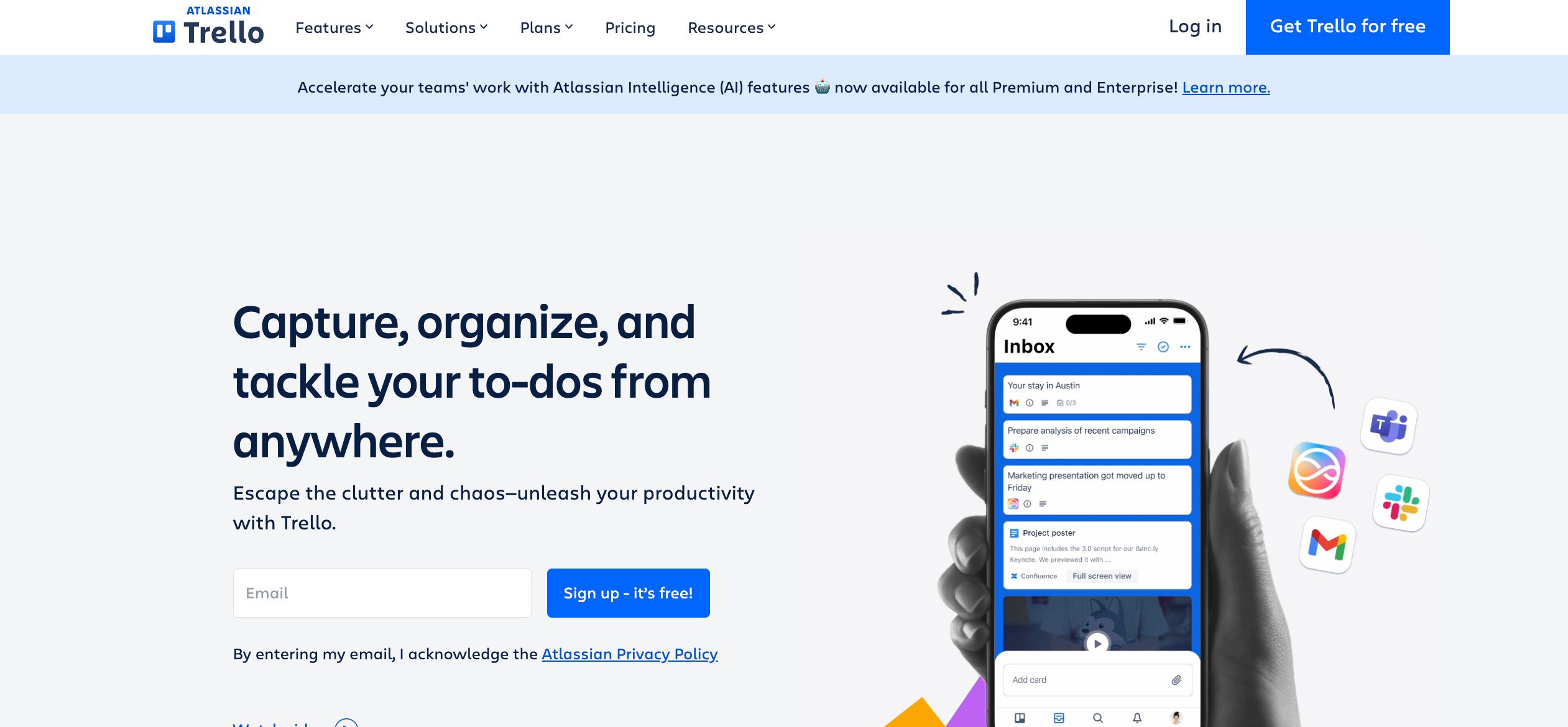
- Pricing: Free plan available. Paid plans start at $5/user/month.
- Standout features:
- Kanban-style task management.
- Power-ups for time tracking, Gantt, and reporting.
- Visual project boards for daily task execution.
- Best for: Small teams managing lighter operations.
11. Autodesk Fusion – Best for engineering-led PM
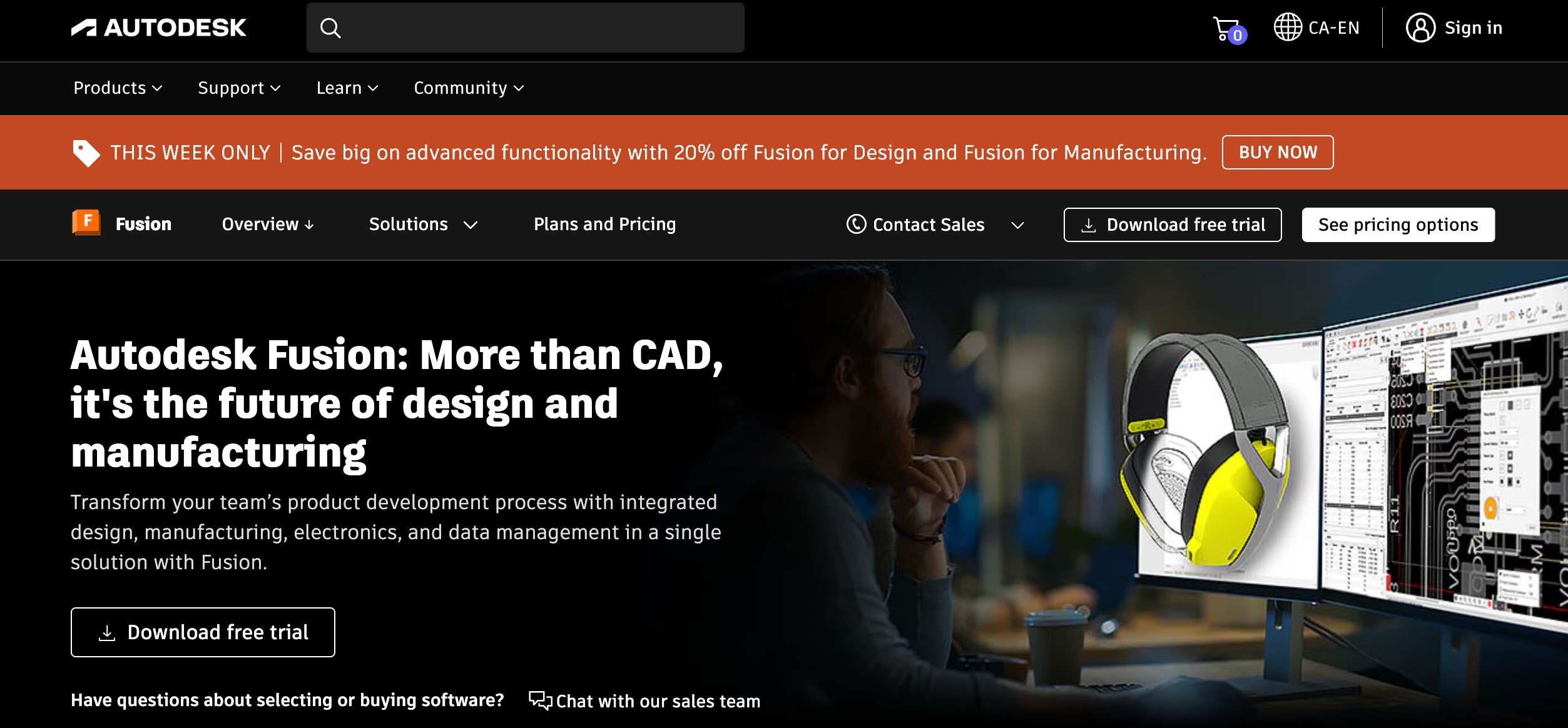
- Pricing: $680/year for Core Essentials plan. Free trial available.
- Standout features:
- Product lifecycle management (PLM) features.
- CAD and design workflow integration.
- Real-time collaboration for team members.
- Best for: Manufacturers with in-house engineering.
12. Zoho Projects – Best for budget-conscious teams
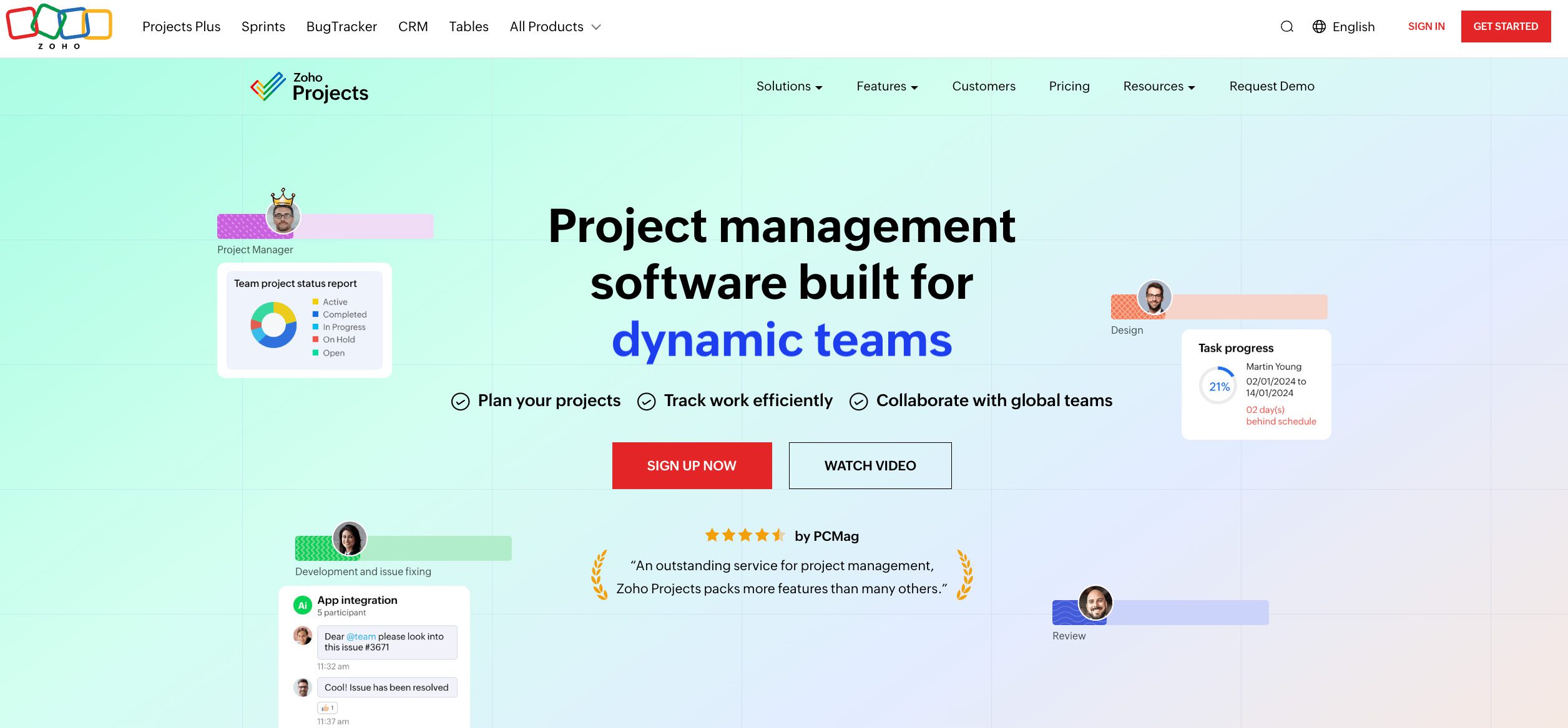
- Pricing: Free plan for up to 5 users. Paid plans start at $5/user/month.
- Standout features:
- Gantt charts, task dependencies, and time tracking.
- Built-in chat, issue tracking, and integrations.
- Strong value for cost.
- Best for: Small manufacturing teams that need essential PM features.
13. CoConstruct – Best for custom builders

- Pricing: Custom pricing.
- Standout features:
- Scheduling, estimates, budgeting, and client portals.
- CRM and sales tools included.
- Job site logs and mobile access.
- Best for: Manufacturers in construction or modular building.
14. Monday.com – Best for visual workflows
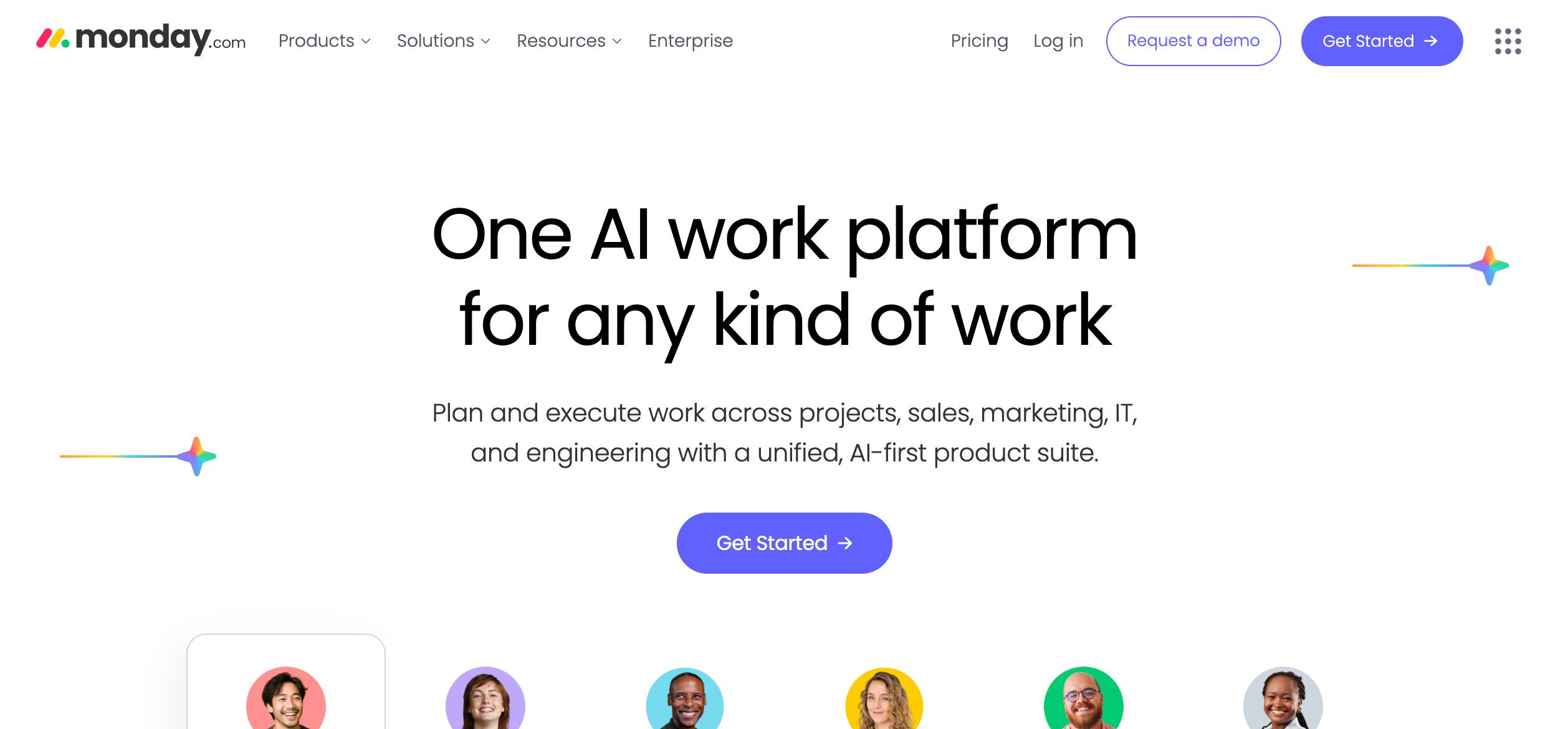
- Pricing: Free plan available for up to two seats. Paid plans start at $9/seat/month.
- Standout features:
- Customizable workflows, dashboards, and automation.
- Templates for manufacturing and logistics.
- Supports collaboration across departments.
- Best for: Teams that want colourful, drag-and-drop project control.
15. ClickUp – Best for all-in-one workspaces
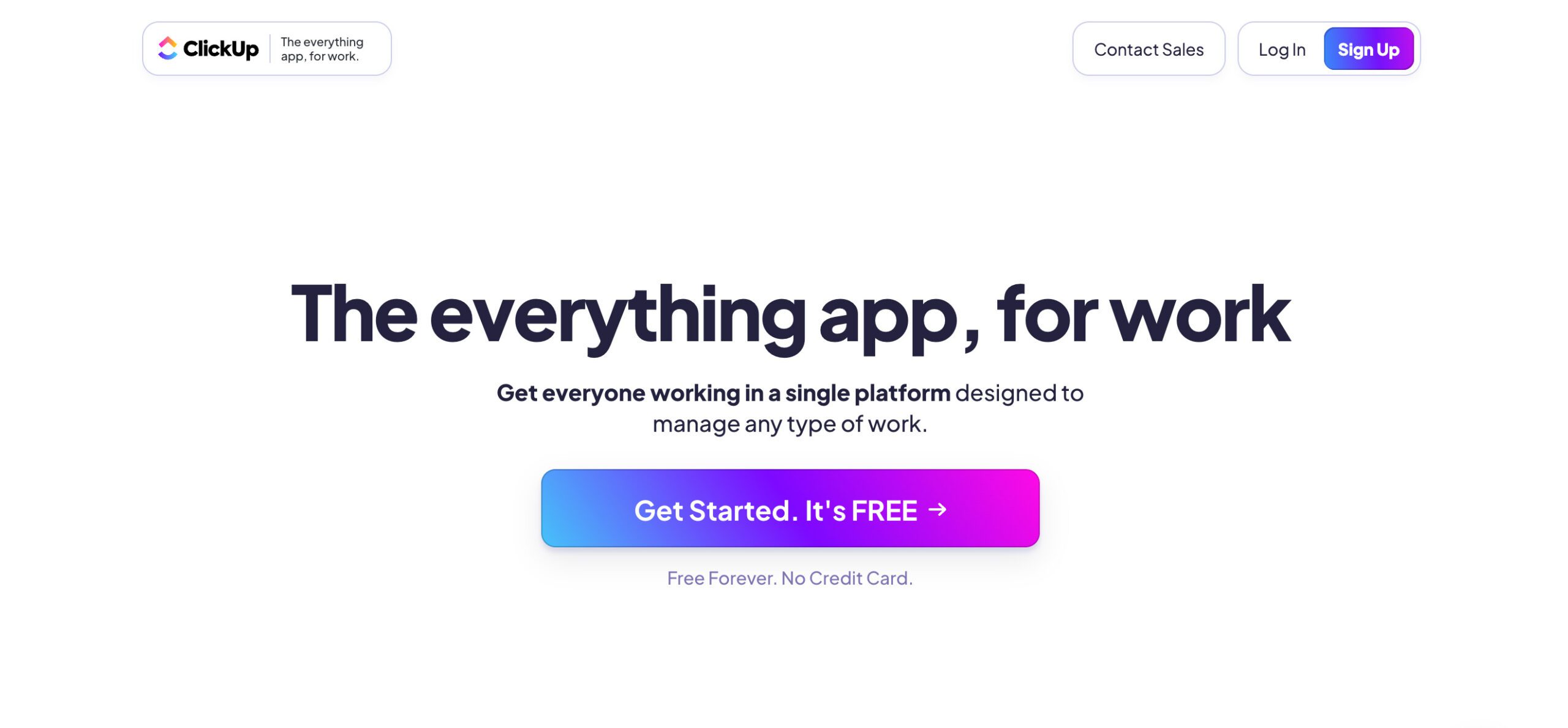
- Pricing: Free for small teams. Paid starts at $7/user/month.
- Standout features:
- Project templates, forms, and resource management.
- Gantt charts, docs, and goal tracking.
- Supports agile and traditional PM.
- Best for: Growing teams with hybrid workflows.
16. Procore – Best for industrial construction
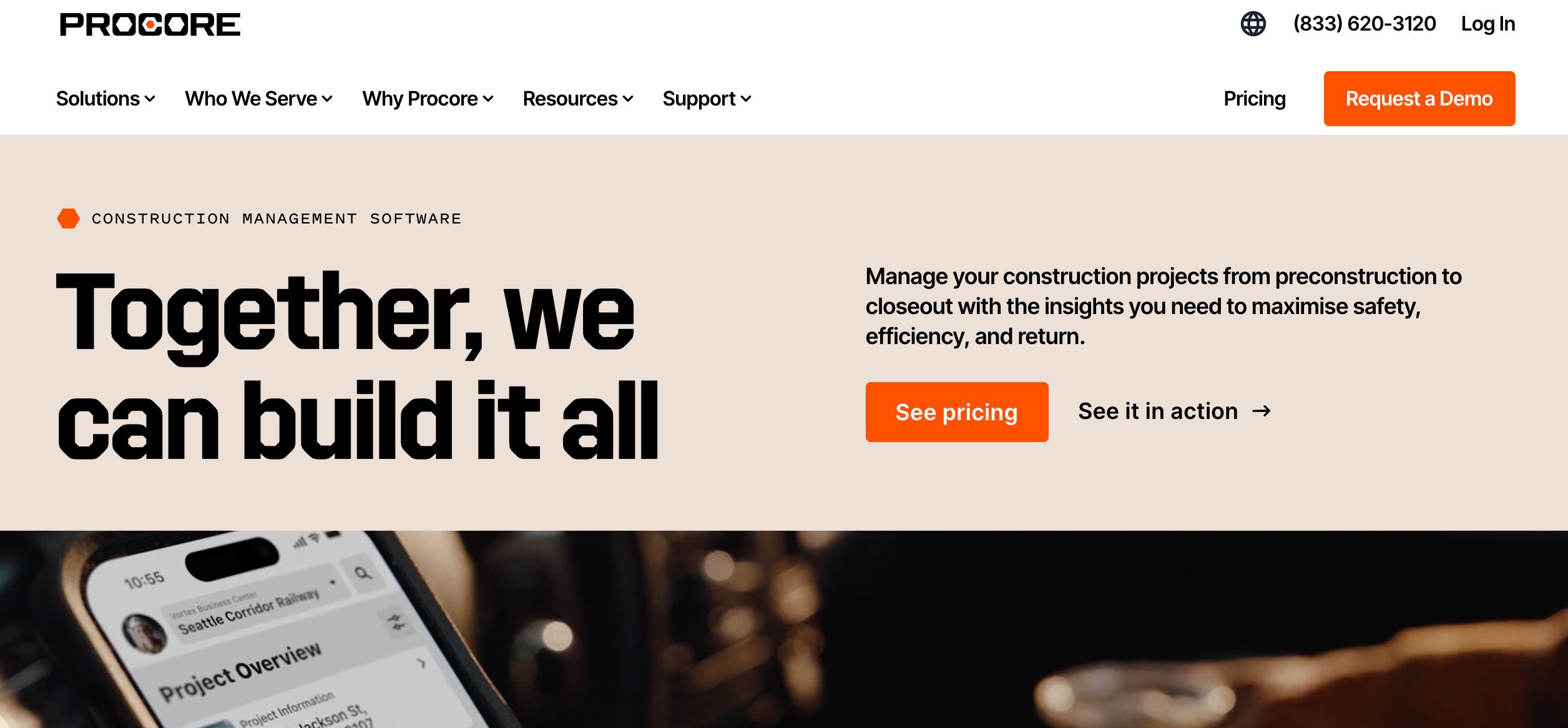
- Pricing: Custom pricing.
- Standout features:
- Document control, subcontractor tracking, and RFIs.
- Field productivity and safety reporting.
- Integration with accounting tools.
- Best for: Heavy industrial and construction manufacturing.
17. FactoryFour (Xometry) – Best for digital order tracking
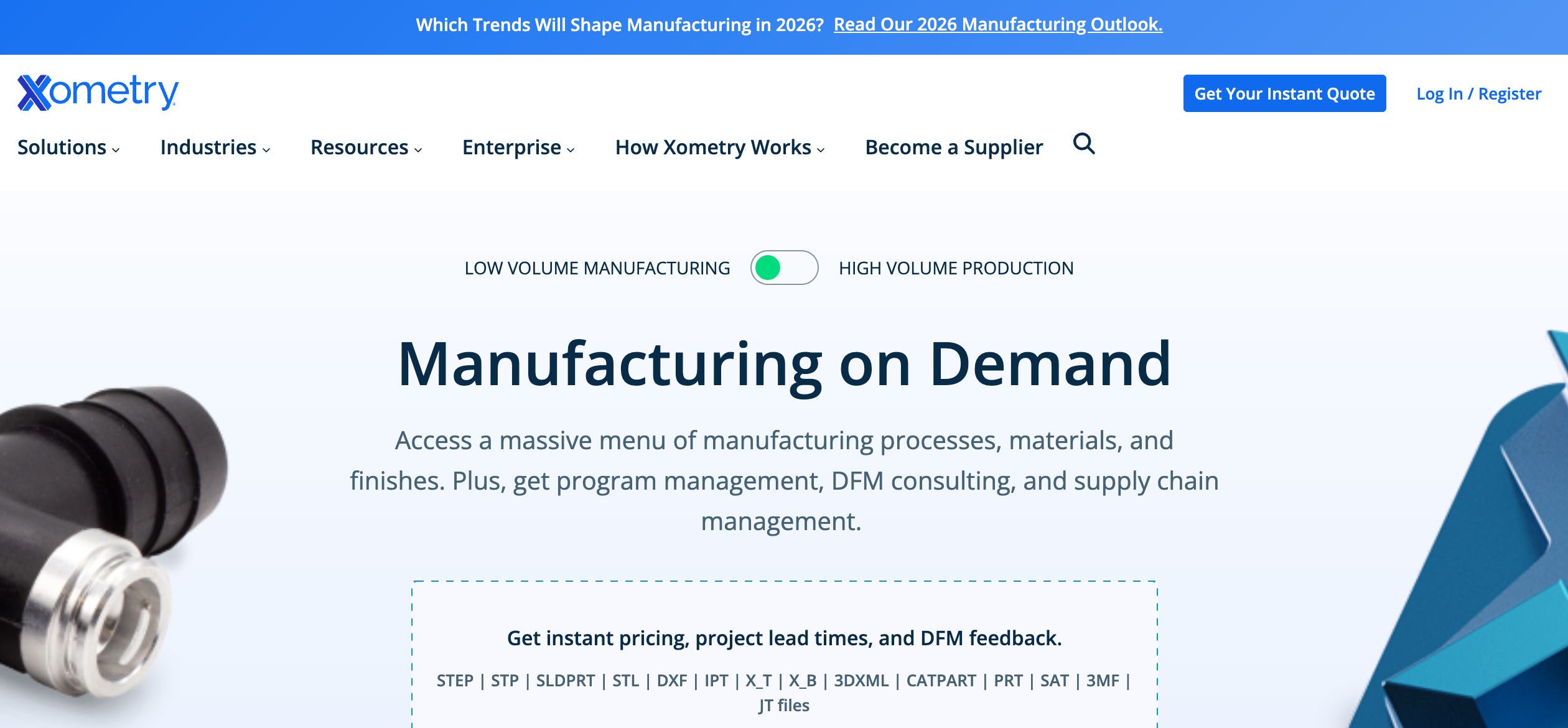
- Pricing: Custom pricing.
- Standout features:
- Real-time production tracking and order visibility.
- Custom production workflows.
- Barcode scanning and dashboard reporting.
- Best for: Mid-sized factories needing production transparency.
18. Easy Project – Best for teams with external clients
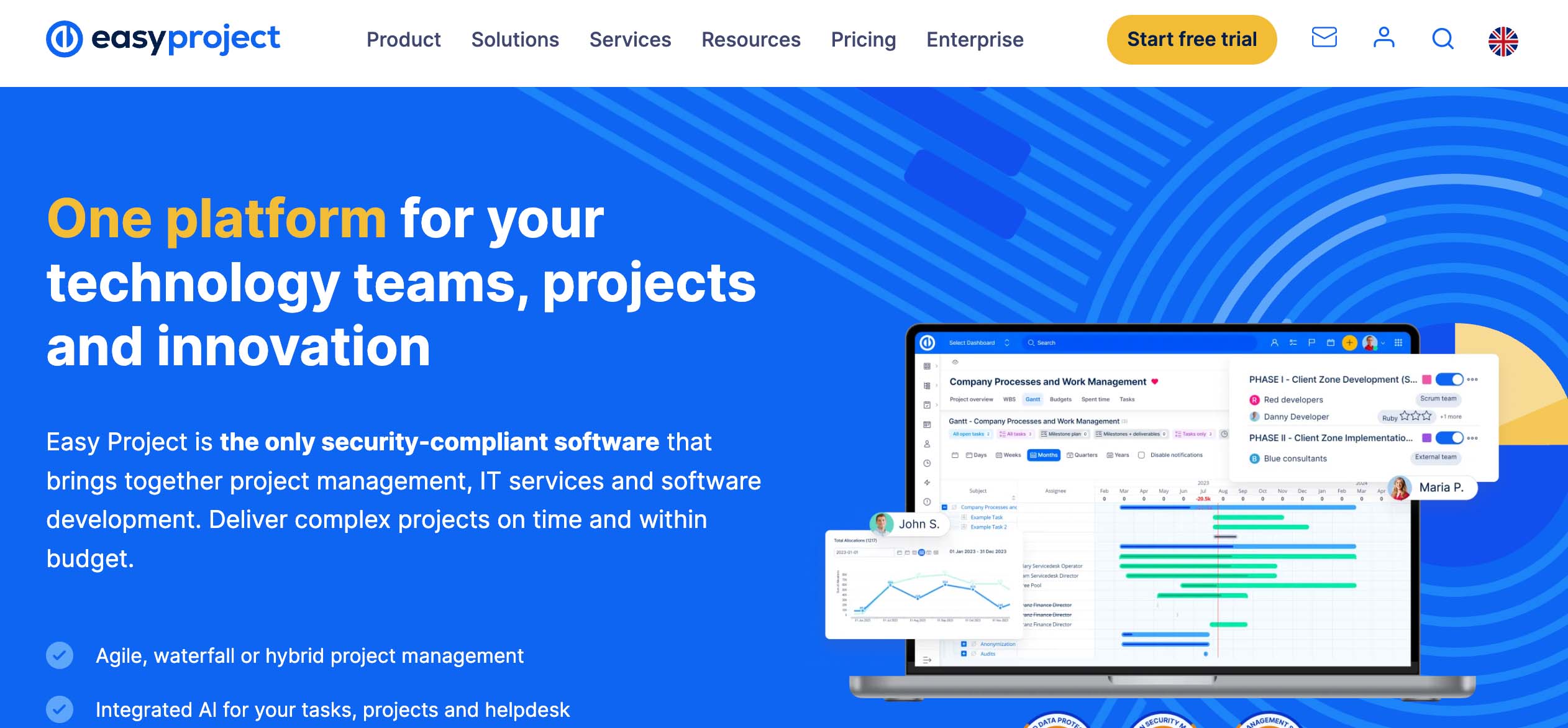
- Pricing: Starts at $7.50/user/month.
- Standout features:
- Work breakdown structures and capacity planning.
- Client-facing dashboards and approval workflows.
- Integrated time tracking and Gantt tools.
- Best for: Manufacturers offering custom or client-led projects.
19. ERPAG – Best for all-in-one on a budget
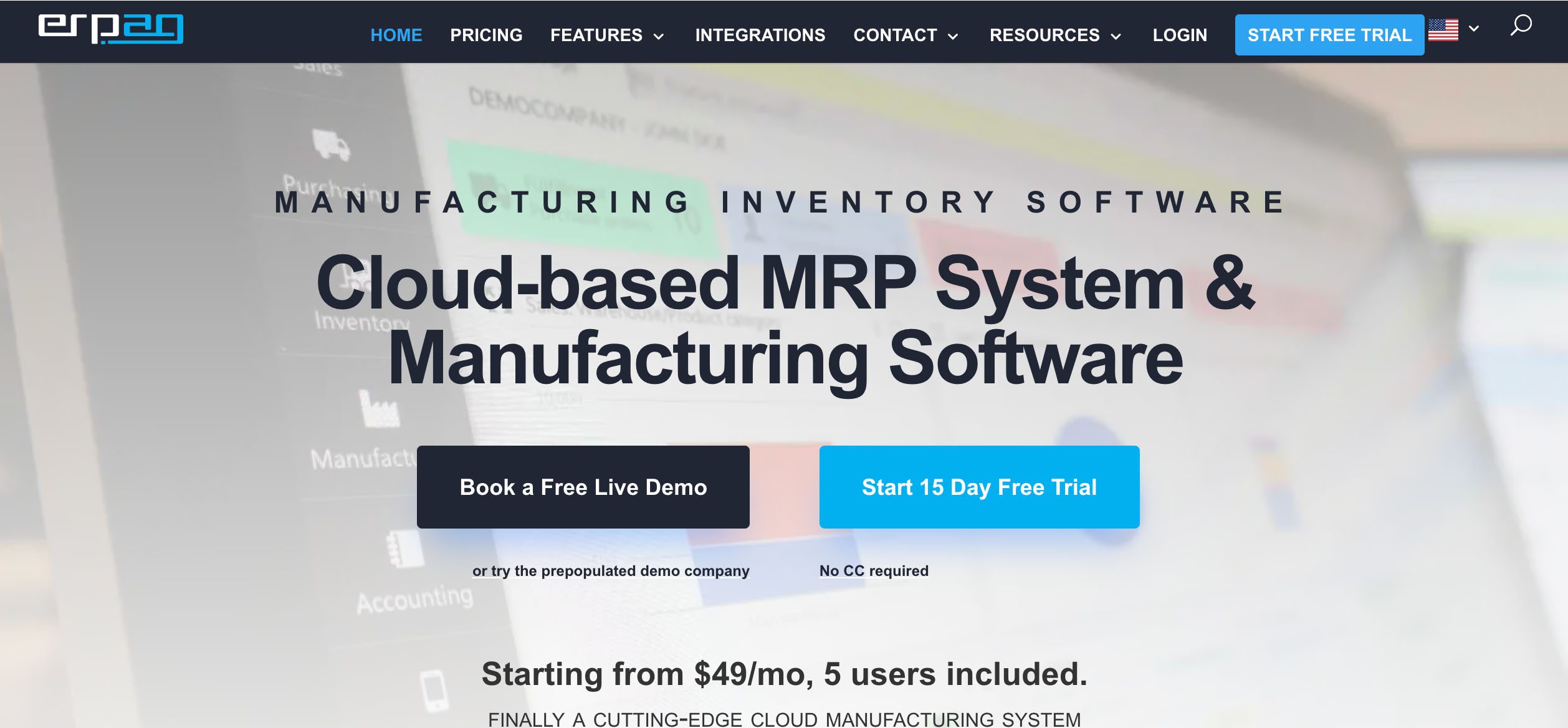
- Pricing: Starts at $49/month with 5 users included.
- Standout features:
- Inventory, MRP, purchasing, and invoicing tools.
- Sales order management and barcode support.
- Cloud-based, designed for SMBs.
- Best for: Small to mid-sized manufacturers that need a low-cost ERP.
How to choose: A 5-step process
With so many manufacturing project management tools out there, finding the right one can feel like trying to solve a puzzle with missing pieces. Instead of getting stuck comparing features blindly, follow this 5-step process to find the software that actually fits your team’s needs and grows with your operation.
1. Map your workflows and hidden bottlenecks
Start by taking a good look at how your team actually works. Where do handovers slow down? Which steps still rely on email or sticky notes? Identifying these pain points helps you understand exactly what the new tool needs to fix. For example, if your approvals process always gets delayed or your production status is never up to date, flag those as must-fix areas.
The goal here is clarity. Your aim is to buy back time and efficiency.
2. List required functions
Next, create a list of non-negotiable features. Think beyond generic project tracking. Do you need built-in inventory management? How about quality control tools, time tracking, or production planning modules?
Make sure your chosen tool can handle the entire lifecycle of your manufacturing projects, from quoting and scheduling to delivery and reporting. Bonus points if it comes with templates or prebuilt workflows designed specifically for manufacturing use cases.
3. Confirm ERP compatibility
If you’re already using an ERP system, integration is key. Your project management software should work well with your ERP to avoid duplicate data entry and mismatched reports.
Look for options with native ERP integrations or open APIs so you can connect tools like NetSuite, QuickBooks, or Microsoft Dynamics. Without proper integration, you risk turning your project management tool into just another silo.
4. Test real-time reporting with sample data
Real-time visibility is what separates good project management software from great ones. Ask for a trial or live demo and upload sample data. Can you view shop floor status, task progress, and financials as they happen?
Good reporting means more than colourful dashboards. You should be able to drill into workload, delays, job costing, track progress and completion estimates, all without exporting spreadsheets.
5. Calculate ROI versus your current process
This step often gets skipped, but it matters. Compare the cost of the tool against the lead times and money you’re losing using spreadsheets or cobbled-together systems. How many hours are wasted chasing updates? How many errors come from manual data entry?
Use this comparison to justify the switch and calculate the time it will take to see a return. When you take the time to run the numbers, investing in a proper manufacturing project management tool pays off fast—often in fewer missed deadlines, reduced overtime, and happier teams.
Method CRM + QuickBooks: A closer look
When it comes to project management for manufacturing teams, most tools stop short of aligning your back office and your shop floor. Method gives you real-time visibility and control in a way that feels flexible, not forced. Let us break down exactly how it works and when you might still want to layer in a more traditional MES or ERP system.
Built for small manufacturers using QuickBooks 🧾
Method CRM focuses on being the best companion to QuickBooks, helping small to mid-sized manufacturers streamline operations, reduce manual work, record milestones and get more visibility without switching systems entirely.
If you already use QuickBooks Online, Method’s two-way integration means your estimates, invoices, customer records, and payments stay perfectly in sync. No more re-entering data or wasting time cleaning up mismatched numbers.
But the real value comes from how Method lets you build around your existing setup, customizing workflows, screens, and job templates to suit your exact needs. The good news is you won’t be locked into rigid fields or layouts. Instead, you get a drag-and-drop experience that feels more like designing your own digital workspace.
Manage shop floor updates without the mess 👨🏼💻
Keeping your shop floor and back office on the same page is a common pain point for manufacturing companies. Many teams still rely on printed job cards, text messages, or whiteboards to track work-in-progress. It’s easy for things to get missed.
With Method, you can set up job records with custom statuses and live updates to match your production flow — and even configure alerts or notifications to keep your team in sync.
In return, your production schedule will be accurate, your sales team will be informed, and your customer expectations will be in check.
Customize every screen to fit your workflow 🎨
Many CRM or project management platforms give you a standard dashboard and expect you to adapt. Method takes the opposite approach. Using the no-code builder, you can customize nearly every screen.
Want to add a field to track inspection results? Done. Need a filter for overdue tasks across projects? Easy. Prefer to see project cost breakdowns alongside progress updates? Just drag and drop.
This flexibility makes it feel like the software works for you, not the other way around. It’s also helpful for onboarding, since you can hide unnecessary fields and keep the experience clean and intuitive for different roles.
Real-time data that speaks to your accounting 📊
Because Method CRM offers a deep QuickBooks integration, your cost tracking and revenue forecasting are always based on up-to-date numbers. As team members update job progress or log time, those changes can be reflected in your invoicing, job costing, and customer updates.
With Method, you won’t have to wait for end-of-week reports or sort through spreadsheets. You get data that reflects what’s actually happening right now across your business.
If you are trying to make better decisions or scale your operations, it’s a huge advantage.
When a light MES or ERP still makes sense 🤔
Now, to be clear, Method CRM is not a full-blown manufacturing execution system (MES) or enterprise resource planning (ERP) platform. If you run a large facility with highly complex production lines, barcode scanning, or integrated machine data, you may still want to add a specialized MES or ERP tool alongside it.
However, for many small manufacturers, that level of software is expensive, overly complex, and challenging to implement. Method provides a strong middle ground for manufacturing businesses. You can handle scheduling, quoting, customer communications, and internal coordination all in one place. Then, if your needs grow, you can connect Method to other systems using Zapier, APIs, or native integrations.
It provides scalability that lets you start lean and grow on your own terms.
Who Method CRM is best for 🥇
Method is best suited for small to mid-sized manufacturers who:
- Use QuickBooks Online for accounting.
- Handle repeat or custom jobs.
- Need flexibility in how projects and tasks are tracked.
- Want real-time visibility across sales, support, and production.
- Are seeking transparent pricing plans.
You might be a cabinet maker, a packaging company, a machine shop, or a printed goods manufacturer. If QuickBooks is already your financial home, Method CRM is the next logical step for managing everything else.
A modern tool that fits your team 🎯
Method CRM is designed to help real businesses simplify complex projects and operations, reduce manual work, and give everyone on the team a clearer view of what needs to get done.
It works well for owners who wear many hats and need something they can customize without hiring a developer. It’s also ideal for teams that want better coordination between sales, admin, and production.
When paired with QuickBooks, Method becomes a powerful hub that connects your customer data, financials, and production in one place—and that’s the kind of clarity that most growing manufacturers could use more of.
Implementation tips 📝
Rolling out new manufacturing project management software can feel overwhelming, especially when you’re juggling orders, customers, and tight delivery schedules. Here are a few tips to make your implementation of business processes smoother and more successful.
Start with a pilot test
Instead of rolling out the new system across your entire operation all at once, begin by allocating resources to just one production line or team. A pilot test will let you try out workflows, identify gaps, and fix any issues in a controlled setting.
Choose a product line or job type that reflects your typical workload, but not your most high-pressure one. That way, you can gather useful feedback without too much risk. Once the pilot is running smoothly, expand the rollout step by step across other areas.
Migrate historical data with care
Bringing in your old data is important, but that doesn’t mean you need to transfer every last file or spreadsheet. Focus on migrating key customer records, recent job history, active projects, and relevant financial data.
Your team will then have the context they need to do their jobs without cluttering the system. You can always archive older data or upload it gradually. Many platforms, including Method CRM, offer import tools or support services to make the process easier.
Train in small, focused sessions
Avoid the temptation to run long, all-day training sessions. They’re often too much to take in at once, and most of it gets forgotten by the time someone needs it.
Instead, break training into bite-sized sessions focused on specific tasks or roles. For example, run a 30-minute walkthrough on job tracking for your floor supervisors, then a separate session on invoicing for your admin staff. That sort of approach fits better into the workday and helps everyone absorb what they need, when they need it.
Get help when you need it
If your internal team is stretched thin or unsure where to start, it’s worth using Method CRM’s professional services team. They can help map your current workflows and manufacturing operations, customize templates, and offer training tailored to your setup.
Think of them as your support crew while you get up and running. With the right guidance, your new system can be fully implemented and driving value within just a few weeks rather than months.
Frequently asked questions
What is the difference between manufacturing project management software and ERP?
ERP software covers all areas of a business, from finance to HR to procurement. Manufacturing project management software focuses specifically on managing production timelines, resources, and tasks. Some tools offer light ERP features, but many manufacturers combine the two for best results.
Can I use general project management tools for manufacturing?
You can, but you might run into limitations. Generic tools often lack features like bill of materials tracking, inventory control, or shop floor data capture. If you’re managing complex production schedules or job costing, a specialized tool will give you more control and better results.
Do I need to hire a consultant to implement manufacturing software?
Not always. Many tools are designed to be user-friendly with guided onboarding. That said, if you are dealing with large teams, multiple facilities, or complex manufacturing processes, working with a consultant or using the vendor’s professional services can save time to optimize and reduce errors.
How long does it take to fully implement a system like Method CRM?
It depends on your company’s size and setup. Method offers a gradual rollout approach and tailored onboarding support to help your team get comfortable step by step based on your decision-making process.
Does Method CRM support both service-based and product-based manufacturers?
Yes. Method is flexible enough to support a variety of workflows in the manufacturing industry. Whether you are building to order, assembling products, or delivering installation services, you can customize dashboards, templates, and workflows to match your process.
Final thoughts 💡
Managing projects in a manufacturing environment is no small task. You’re juggling shifting timelines, raw material needs, machine availability, and team schedules, all while trying to deliver on time and within budget. The right project management software isn’t magic by any means, but it’ll certainly take a lot off your plate.
Choosing a tool that fits your exact business needs can help you streamline operations, reduce costly delays, and improve customer satisfaction. Look for platforms with customizable templates, live dashboards, and automation tools that make your life easier, not more complicated. Most importantly, make sure it fits into your existing ecosystem.
If you’re a growing manufacturer looking for a flexible platform that works with your real-world workflows, Method CRM is built for you. It offers powerful project tracking, real-time job costing, and seamless QuickBooks integration, all without locking you into bloated features or fixed workflows.
Ready to see what Method can do for your shop floor?
Book your free demo and explore how Method CRM can be customized to fit your team, projects, and growth goals.




